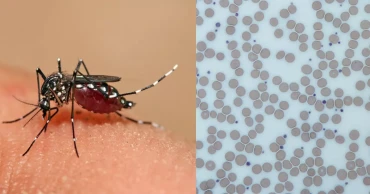Platelets
Best Foods to Increase Platelets in Dengue Fever
Dengue fever, an illness transmitted by mosquitoes, is a viral infection that impacts a vast number of individuals every year across the globe. It is characterized by symptoms such as high fever, severe headache, joint and muscle pain, rash, and in some cases, a decrease in platelet count. Platelets, being vital components of the blood, play a crucial role in the process of coagulation, ensuring the prevention of excessive hemorrhaging. Dengue can lead to a decrease in platelet count. While medical intervention is crucial in severe cases, certain foods can support platelet production and aid in recovery.
Platelet Counts in Dengue
In dengue fever, the virus affects the production and function of platelets, which can lead to a condition known as thrombocytopenia. In a healthy body, the standard quantity of platelets in circulation within a microliter of blood falls within the range of 150,000 to 450,000 platelets. However, during dengue fever, the platelet count can drop significantly, putting individuals at risk of bleeding.
Platelet counts below 150,000 are considered low. And when the platelet count falls below 100,000 platelets per microliter of blood, it is considered a risk zone, and immediate medical attention is required. It is essential to monitor platelet levels regularly during dengue fever to ensure appropriate medical intervention if necessary.
Read more: Dengue Prevention: 10 Home Remedies to Repel Mosquitoes
Best Foods to Increase Platelets in Dengue Fever
Eating a well-balanced and nutritious diet is vital for supporting the immune system and aiding in the recovery from dengue fever. Here are some of the best foods that can help increase platelet counts during dengue fever.
Papaya
Papaya is rich in vitamin C, which plays a crucial role in boosting platelet production. It also contains enzymes like papain that help improve digestion. Consuming ripe papaya or drinking fresh papaya juice can be beneficial. In Bangladesh, papaya is readily available and can be included in the diet easily. Try to have 1-2 servings of papaya daily.
Pomegranate
Pomegranate is a powerhouse of antioxidants and essential nutrients. It can help stimulate the production of platelets and improve overall blood circulation. Including fresh pomegranate juice or adding pomegranate seeds to salads or yogurt can be a healthy choice. Attempt for 1-2 servings of pomegranate daily.
Read more: Exploring Dengue Diagnosis: The Essential Tests for Detecting the Virus
Leafy green vegetables
Leafy green vegetables such as spinach, broccoli, and fenugreek leaves are excellent sources of vitamins, minerals, and antioxidants. They help in increasing platelet counts and boosting overall immunity. These vegetables are commonly found in Bangladesh and can be incorporated into meals or consumed as salads. It would be better to have 2-3 servings of vegetables per day.
Beetroot
Beetroot is rich in iron and folic acid, which are essential for maintaining healthy blood and increasing platelet production. It also contains antioxidants that help in detoxification. Including beetroot in salads or consuming freshly extracted beetroot juice can be beneficial. You may consume 1-2 servings of beetroot daily.
2 years ago

